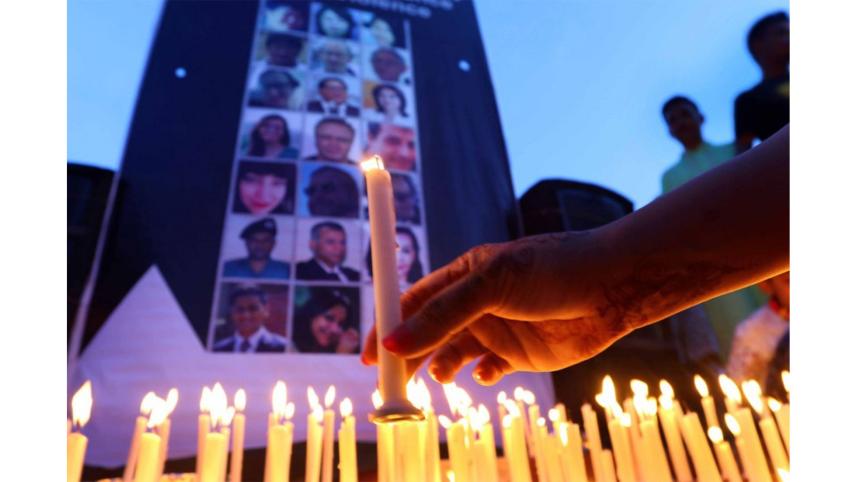Counter-terrorism efforts losing steam

Five years after the gruesome Holey Artisan Café attack shook the nation, it is most unfortunate that our counter-terrorism efforts have remained less than satisfactory. There are two ways to dealing with extremism: one is the hard approach—use of force—and the other is the soft approach. While the former is necessary in certain circumstances—for example, when it comes to handling emergencies like the Holey Artisan attack—it is the latter that can truly prevent extremism from breeding in the long term. Unfortunately, due to a lack of government will, we seem to be stuck in a form of mono-dimensional thinking and have put all our eggs in one basket: concentrating on using force only.
In the absence of a multi-pronged approach involving all the stakeholders, Bangladesh is far from out of the woods of extremism. According to counter-terrorism officials, all forms of faith-based terror groups are breeding in the cyber space, looking to motivate people and recruit new operatives. Moreover, they have also said that militants are even planning attacks and planting improvised explosive devices (IEDs). This means that we have been extremely lucky that no other largescale attack in the country has succeeded so far. But how long can we continue to ride on our luck?
In today's world, terrorism is an ever-present danger. Experts have been harping on the fact that distorted religious ideology cannot be defeated by using force alone, and we have seen plenty of evidence of that being true all across the world. Then what explains such reluctance on the part of the government higher-ups? Is it complacency? What price will we have to pay for that? Another worrying sight is the lack of effort to deradicalise militants when they are in jail—because, in that case, they could easily return to the community after serving their time and look to radicalise others, or their fellow inmates while they are in jail. And it goes without saying how dangerous the results of that could be. Why aren't we, then, seeing more attempts at rehabilitating captured militants or greater focus on deradicalising them?
While we appreciate the effort put in so far by our counter-terrorism outfits, successfully preventing any new attacks, we must call on the government to approach this problem from more than one direction. Having witnessed the ugly face of extremism, we have no excuse to get complacent when it comes to eradicating this disease. The government needs to wake up to the threat of extremism that are out there—all of them—and handle them through a broader approach that involves all the stakeholders and also focuses on preventing radicalisation in society in the first place.



 For all latest news, follow The Daily Star's Google News channel.
For all latest news, follow The Daily Star's Google News channel.
Comments